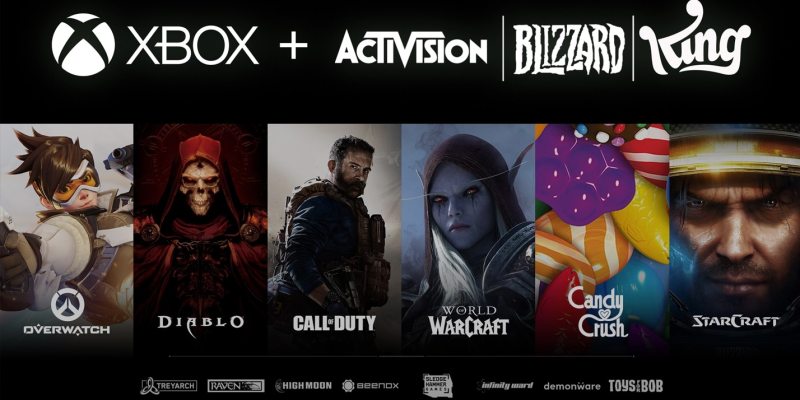The morning of January 18, 2022 started off with a minor bit of unexpected news – Microsoft is in the process of acquiring Activision Blizzard for nearly $70 billion. This would be far and away the biggest acquisition in video game history, eclipsing last week’s news of Take-Two Interactive acquiring Zynga for $12.7 billion.
As I write this article, I’m getting a strange sense of deja vu. Maybe it’s because, back in September 2020, I penned a similar piece following Microsoft’s massive acquisition of ZeniMax / Bethesda, the fruits of which we’re only beginning to see now as the launch of Starfield looms. For the sake of comparison, the ZeniMax deal came in at a comparatively paltry $7.5 billion.
Once the Activision deal closes sometime next fiscal year, which ends in June 2023, Microsoft will become the world’s third-largest gaming business by revenue after Tencent and Sony. But with the acquisition of Activision Blizzard by Microsoft comes a slew of questions, some of which we have the answers to, others we can infer, and some we’ll have to just wait and see.
Which Activision Blizzard Studios Will Xbox Own?
All of them. An Xbox Wire post confirms the list of studios included in the purchase, which includes Activision Publishing, Blizzard Entertainment, Beenox, Demonware, Digital Legends, High Moon Studios, Infinity Ward, King, Major League Gaming, Radical Entertainment, Raven Software, Sledgehammer Games, Toys for Bob, Treyarch, and every team across Activision Blizzard.
With these additions, Xbox’s stable of first-party studios will grow to over 30 teams. It feels like this was the endgame that Phil Spencer and company had in mind when Xbox began its spending spree last generation with studios like Double Fine, Obsidian, and Ninja Theory and continued with ZeniMax.
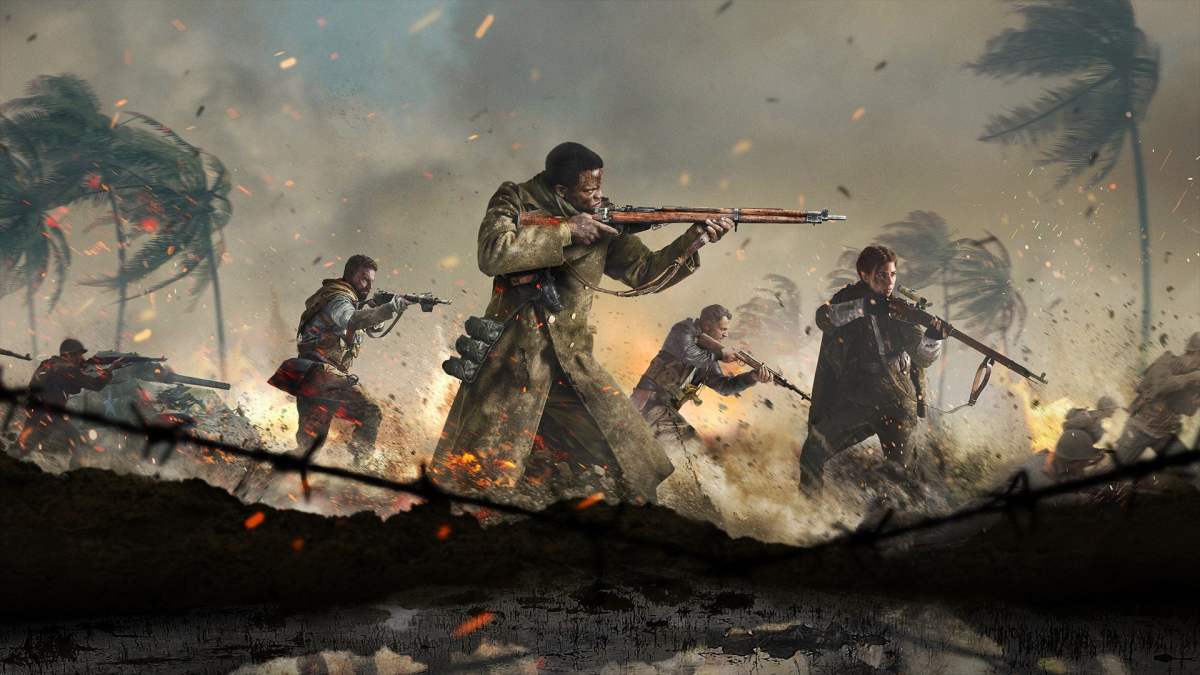
Will Call of Duty, Warcraft, and Diablo Be First-Party Xbox Games?
Yep, once this deal is done, every Activision Blizzard game including Call of Duty, Warcraft, Diablo, Overwatch, StarCraft, Candy Crush, and more is going to fall under the Xbox Game Studios umbrella. We saw the same thing happen with Bethesda’s properties such as Doom, The Elder Scrolls, and Fallout.
Is Call of Duty Going to Become an Xbox Exclusive?
This is where things get interesting – the answer is a resounding “maybe?” A source told Bloomberg, “Microsoft plans to continue to distribute Activision Blizzard games for Sony’s PlayStation, but will also plan some Xbox exclusives.”
Obviously nothing is set in stone, but I read this in a similar manner as to how Xbox has handled Bethesda library exclusivity. If there are any lingering deals that Activision Blizzard games had with PlayStation, they’ll most likely continue to be honored in the same way that Deathloop and GhostWire: Tokyo remained timed PlayStation 5 exclusives even after the Xbox acquisition. It also appears that certain persistent games like The Elder Scrolls Online, as well as legacy titles, remasters, and re-releases, are still fair game across all platforms. But then we have Bethesda’s Starfield, which was revealed prior to the acquisition as a multiplatform game, but has since become an Xbox and PC exclusive leading up to its November 2022 launch.
Extrapolating to the Activision Blizzard situation, Call of Duty: Warzone could remain platform-agnostic on PlayStation, while mainline Call of Duty games going forward could become Xbox and PC exclusives. Furthermore, it’ll be interesting to see what happens to already announced games like Overwatch 2 and Diablo IV.
Time will ultimately tell on this one. The NPD Group just released its list of the bestselling PlayStation games in the US in 2021, and Call of Duty: Vanguard and Call of Duty: Black Ops Cold War were #1 and #3, respectively. Having these massive sellers no longer appearing on PlayStation would mean leaving a lot of money on the table, especially with Microsoft now licensing them out. That said – you don’t spend $70 billion without plans to shake things up.
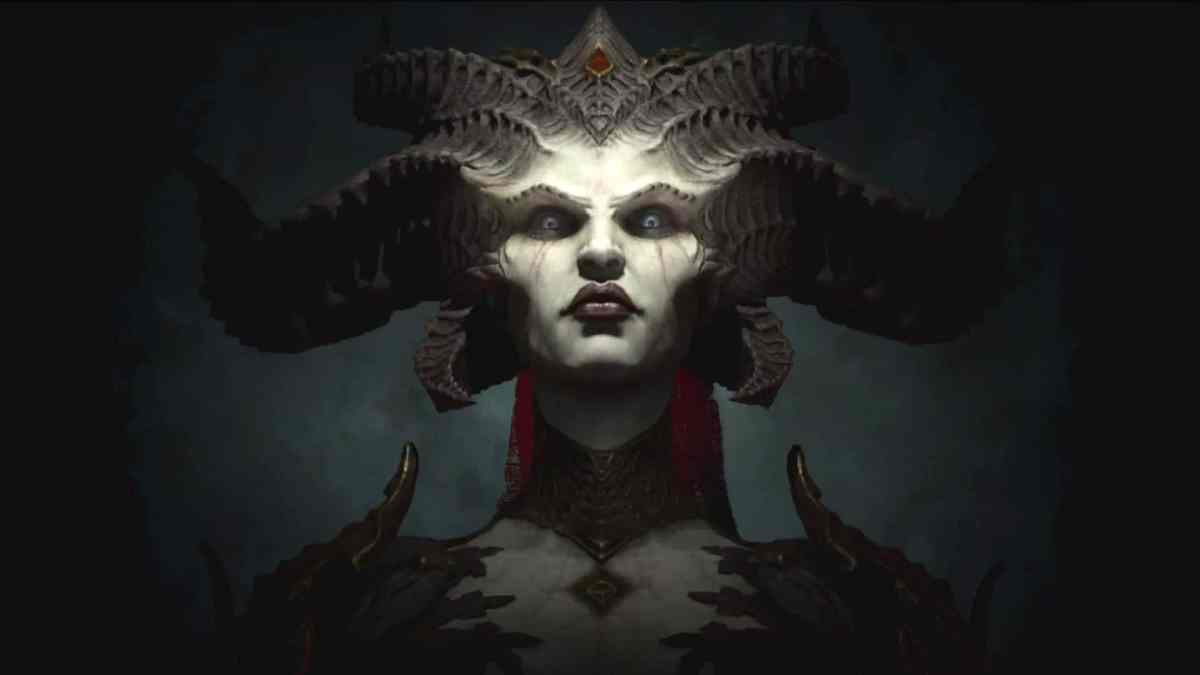
How Does This Impact Xbox Game Pass?
Positively! Game Pass benefited from a wealth of new Bethesda games after that acquisition, as well as the promise that all future Bethesda games like Starfield and Arkane’s Redfall will hit the service on the day of release. We can expect the same from Activision Blizzard. In his aforementioned Xbox Wire post, Phil Spencer stated, “Upon close, we will offer as many Activision Blizzard games as we can within Xbox Game Pass and PC Game Pass, both new titles and games from Activision Blizzard’s incredible catalog.”
In the same post, Xbox confirmed that Game Pass now has over 25 million subscribers. Hours later, Xbox confirmed a stellar lineup of Game Pass games for the rest of January 2022, including Danganronpa, Nobody Saves the World, Death’s Door, Rainbow Six Extraction, and the recent Hitman Trilogy. So yeah, that subscriber number is only going to grow once games like Call of Duty and Diablo IV begin hitting the service day-and-date, not to mention the wealth of Xbox Game Studios projects in the works for the coming years.
So Is This a Monopoly? Will the FTC Get Involved?
(Since the original publication of this article, our resident lawyer has provided us a much fuller answer for this question!)
Maybe? VGC first reported on an episode of CNBC’s Squawk Box where analysts stated that Microsoft’s Activision Blizzard acquisition “could be on a collision course with lawmakers.” The show’s host Joe Kernan was joined by Gene Munster, founder of the tech investment firm Loup.
Last summer, President Biden signed an executive order targeted at “big tech” companies in hopes of promoting competition in the US economy. Microsoft and Activision Blizzard used this as a springboard, with Munster saying, “The title of this episode [should be] Silicon Valley / DC Collision Course, because effectively what Microsoft and Activision are doing is saying ‘we don’t buy it DC, we don’t buy that you want to create greater control around these companies, we don’t believe that you ultimately want to break up these companies.’”
However, Munster ultimately felt that the deal would go through, explaining, “In the end, these big tech companies – despite, I think, frustration from many about the kind of wealth that they’ve created for themselves – I think that they are ultimately making consumers’ lives better.” He continued, “And I think that you can debate the profitability side of this, but I think it [will actually happen] because I think in the end DC doesn’t have the ground to stand on to ultimately block this.” Again, thanks to VGC for first reporting on this.
It’s also worth noting that this wouldn’t be the first time that Microsoft faced antitrust charges, with the company spending a bulk of the ‘90s fighting the FTC in cases involving its Windows OS.
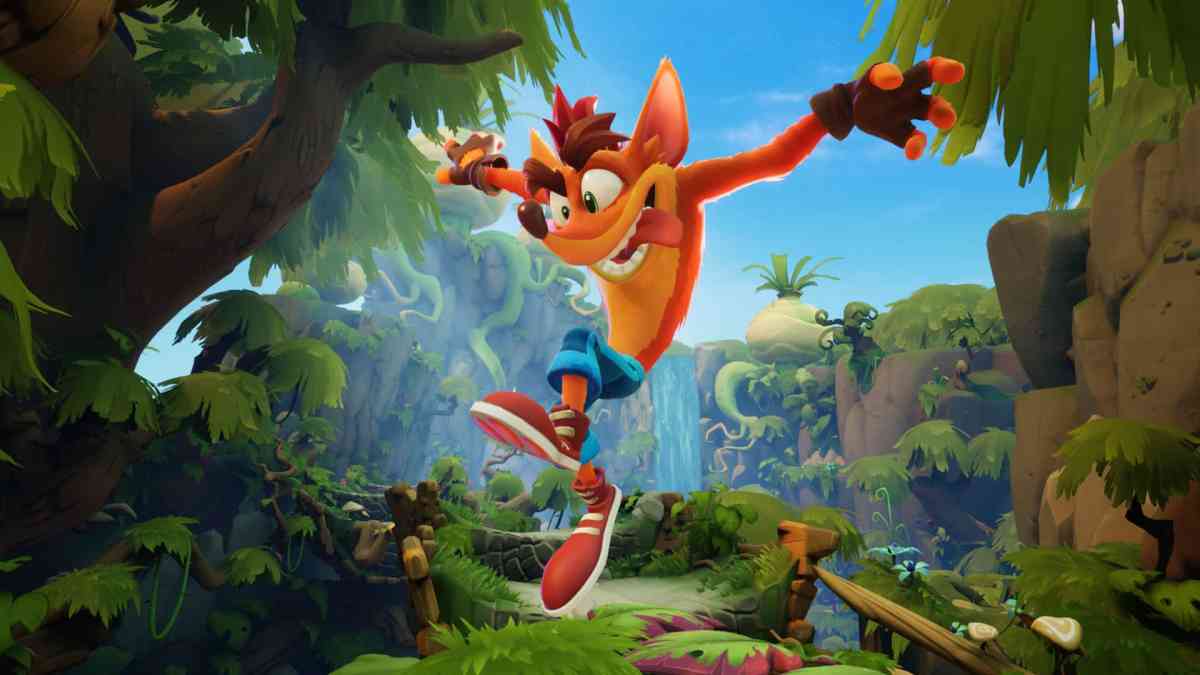
What Happens to Bobby Kotick?
While Microsoft is inheriting a slew of talented developers and massively popular franchises, it’s also inheriting a lot of baggage and work to be done in the form of toxic leadership, lawsuits, moves towards unionization, and the CEO Bobby Kotick of it all. It’ll be some time before we get a sense for how Microsoft and Xbox leadership are going to work towards remedying all of these massive and deeply rooted problems, but Wall Street Journal sources say that both parties have agreed that Kotick will depart once the deal is closed.
This report came after the news that Kotick will remain as CEO of Activision Blizzard throughout the transition process, with a Microsoft spokesperson saying, “Bobby will lead Activision Blizzard as CEO, as he has for the last 30 years. Together, Bobby and Phil will work together to ensure the transition to this exciting new combined enterprise. The Activision Blizzard business will report to Phil after the close.”
That last part is crucial, as today’s news also came with a new Xbox Gaming Leadership organization chart, which Kotick is notably absent from. It starts at the top with Phil Spencer as CEO, Microsoft Gaming, and paints a very different picture than what we’ve seen from Activision Blizzard’s board of directors. Given Spencer’s focus on inclusivity and safe working environments, it’s hard to imagine that Kotick remains with the company once the deal is finally done, which seems to be exactly the case.
Prior to today’s news, Xbox weighed in on the issues a few months ago. Following reports detailing sexual harassment and discrimination at Activision, Phil Spencer sent out an email to staff saying he was “disturbed and deeply troubled by the horrific events and actions.” He also told the team that he would be “evaluating all aspects of our relationship with Activision Blizzard and making ongoing proactive adjustments.”
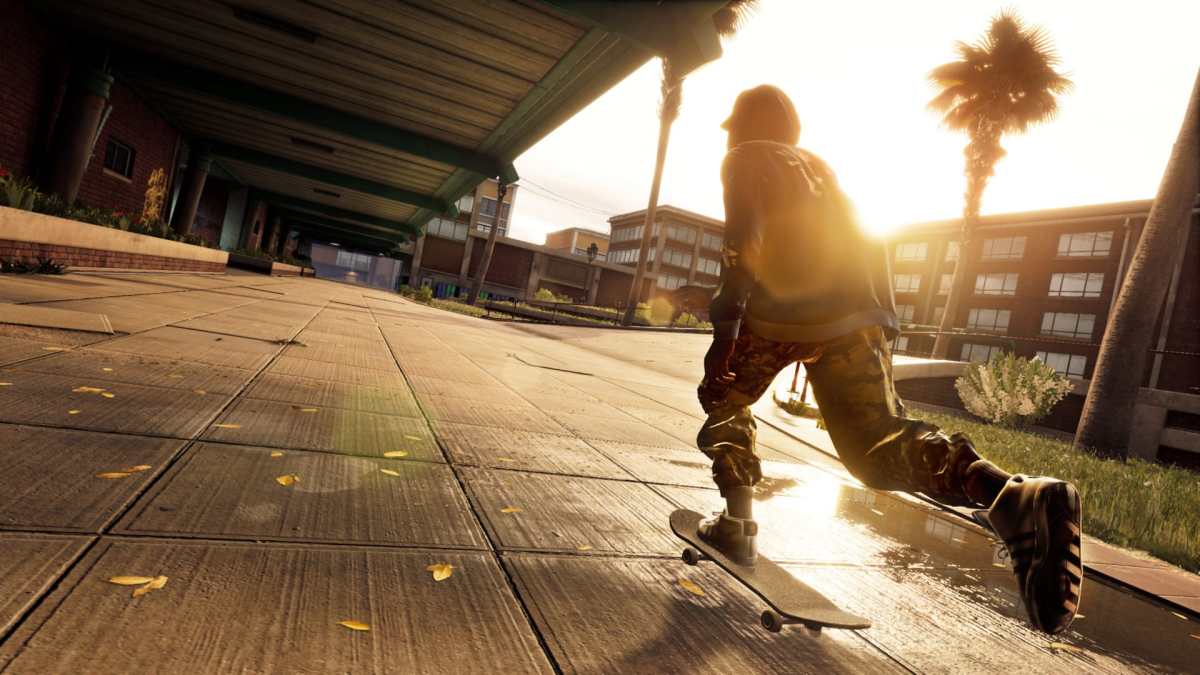
How Does PlayStation Respond to This News?
While it seems like Microsoft has been the one making massive splashes with acquisitions of Bethesda and Activision, Sony certainly hasn’t been stagnant in this market. 2021 alone saw PlayStation bring studios like Housemarque (Returnal), Bluepoint (Demon’s Souls remake), Firesprite (Horizon Call of the Mountain VR), and Nixxes (numerous PC ports).
That said, there are persistent rumors of Japanese studios possibly being acquired in this first-party arms race, with names like Sega, Konami, Capcom, and Square Enix always being tossed around. It’s also worth noting that PlayStation’s move to start porting its aging exclusives to PC has been paying off, with last week’s PC release of God of War 2018 topping Steam charts, and becoming Sony’s top-rated and most played PC game to date.
While we’ll have to wait and see how this all shakes out, PlayStation fans certainly have nothing to worry about in 2022. The PS5 is still dominating the console race, with many still frustrated as they’re unable to simply walk into a store and purchase one. And that’s not even including the pair of massive sequels coming this year in Horizon Forbidden West and God of War Ragnarok.
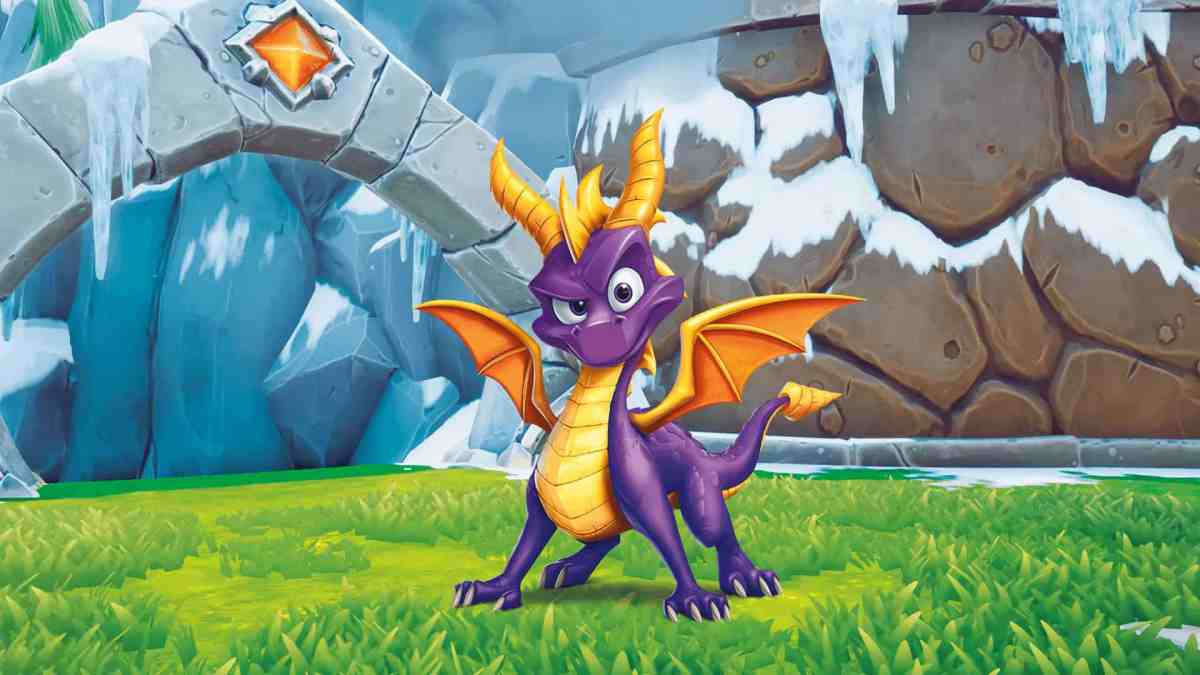
Could We See Studios Escape the Endless Annual Call of Duty Cycle?
While it might be wishful thinking, this is ultimately what many hope to see from today’s news. It’s no secret that Activision has turned its stable of studios into a never-ending Call of Duty machine. We saw it happen time and time again, even when a studio was working on other critically-acclaimed projects.
Toys for Bob went from Spyro Remastered and Crash Bandicoot 4: It’s About Time to becoming a Call of Duty support studio. Vicarious Visions released the beloved Crash N. Sane Trilogy and Tony Hawk’s Pro Skater 1+2, before being folded into Blizzard Entertainment. Raven Software, the studio that once made the excellent Star Wars Jedi Knight II: Jedi Outcast, X-Men Legends, and Singularity, became relegated to Warzone.
Despite Xbox’s ever-growing team of studios, it feels as if they’re all allowed to work on unique projects that they’re genuinely passionate about. It would be great to see this mentality transferred over to the talented teams at Activision Blizzard.
Instead of being beholden to the never-ending wheel that is Call of Duty’s annual releases, imagine if these studios got a chance to take a break and work on something else. What if mainline Call of Duty games took a break for a few years and came back with something truly new and innovative? What if Sledgehammer, Treyarch, and Infinity Ward were allowed to work on entirely new IP? What if support studios like Raven Software, Vicarious Visions, and High Moon could spread their wings and handle their own smaller projects? Obviously, this is a lot of wishful thinking, but certainly not outside the realm of possibility.
Also, please just let Toys for Bob make a new Banjo-Kazooie game.
The Microsoft / Activision Blizzard news points to Xbox kicking off 2022 with the same momentum it built over the course of 2021. The Bethesda acquisition, the continued growth of Game Pass, the expansion of its “play anywhere” motto, and the release of massive hits like Psychonauts 2, Forza Horizon 5, and Halo Infinite all helped make Xbox Series X | S the fastest-selling Xbox console generation. Xbox is continuing at full speed from here.
